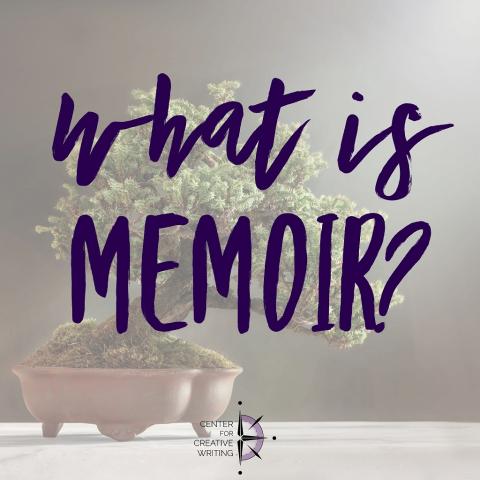
Everybody wants to write a memoir.
At least, everyone I meet, in my capacity as director of a creative writing organization. When I ask a new student about their writing goals, I hear I want to write a memoir more than anything else.
Why the pull to write a memoir? I feel like there is an easy answer here: we want to communicate the truth of our lives. We want to record what happened.
What IS memoir is a trickier question.
What is memoir?
A memoir is not simply a life story. That’s an autobiography, and it’s bound by the linear chronology of one’s major events and milestones, a la Dickens’ David Copperfield, “Chapter 1: I am born.” However the memoirist chooses to rearrange the details, birth and death bookend a life story.
A memoir is more than a life story. There are dozens of quality definitions out there, but the one I return to over and over is the one I learned from our own Helena Clare Pittman, who says that a memoir is an exploration of one of our “soul themes.”
See, each of us could write three, four, eight, 10 memoirs, because each of us has more than one theme of our existence. One of my soul themes is motherhood. Another is being a writer, and another is being an abuse survivor. Some of us might have cancer survival as a soul theme. For others, it’s travel, food, a notorious ancestor, a unique experience, a difficult relationship, or the spotlight of fame or fortune. A soul theme is recurrent, a motif or pattern that becomes part of the fabric of our identity.
A good memoir makes one or more of our soul themes the backbone of the narrative. By this standard, some of the incidents and events that might be included in the biographies of our lives might not make it into this or that memoir. A memoir isn’t about recording everything that’s ever happened to us. It’s about building a narrative around a soul theme.
One of the first memoirs I really connected with was Molly Peacock’s Paradise, Piece by Piece. Peacock’s soul theme in this memoir is the decision not to have children. Every detail, every story, in the memoir builds up this theme for the reader. Of course, there is more than one soul theme: childhood abuse, alcoholism, grief, a pervasive feeling of being different and not belonging within one’s family—formative and painful experiences that often make us run headlong toward dysfunctional adult relationship and habits. Peacocks’ memoir is not about running away from or toward anything, but about learning to stand still and figure out who she is on her own terms (a writer, a teacher, a lover, a survivor). Every story, every turn of the narrative, contributes to the theme of I don’t want to have children of my own. It’s not a defense, nor is it a judgment of anyone else’s lifestyle or choices; it’s the story of making a decision over and over again, at different times in one’s life, and the experiences that inform that decision.
Mary Karr wrote three memoirs: The Liars’ Club, Cherry, and Lit. Each has a different soul theme. (Incidentally, Karr also wrote The Art of Memoir, which is a must-read for anyone interested in writing one themselves.)
A memoir writing exercise
So, how many different soul themes do you have?
Helena would have you make a list of them. Today, I want you to ask yourself the question, What is the dominant soul theme of my life? Think about it for up to 10 seconds and then write down the first thing that comes to mind.
Now, think about what it would be like to explain who you are to someone you’ve never met, according to this soul theme. How would you describe yourself in the third person (if I were doing it myself, I would say, She teaches at the Center for Creative Writing or She is the mom of a rock star nine-year-old, etc.)? And most importantly, what stories or anecdotes would you share with this other person about your life that build a narrative around your chosen soul theme?
Write a page or two where you explain your identity in terms of your most dominant soul theme to someone you don’t know.
What did you think of this definition of memoir, or this way of thinking about how to write one? Will you try this writing exercise? Share with us in the comments.
Related reading: Learn and strengthen your writing voice
Writing in pieces: In defense of fragments over finished products
Writing emotional vs. literal truth
Want to receive tips and inspiration like this in your inbox every Sunday morning? Join our email list community! You will receive weekly advice, a year’s worth of weekly writing prompts as a FREE download, and be eligible to participate in our monthly photo prompt contest for a chance to share an original piece of writing with our community of more than 2,100 writers.
